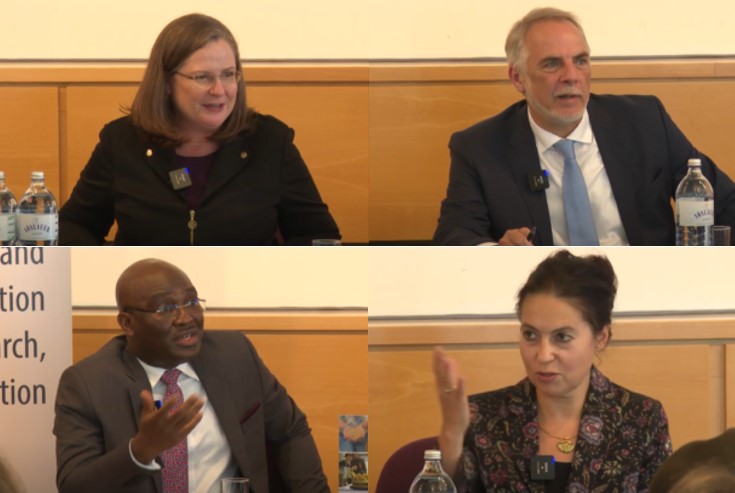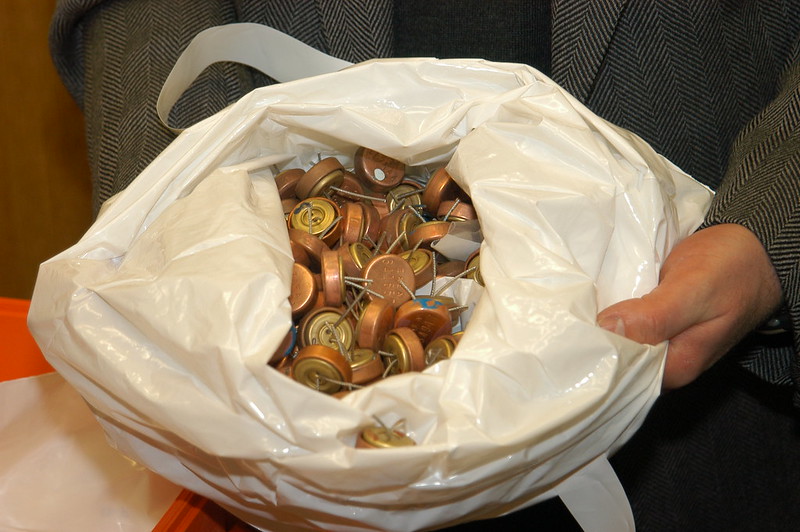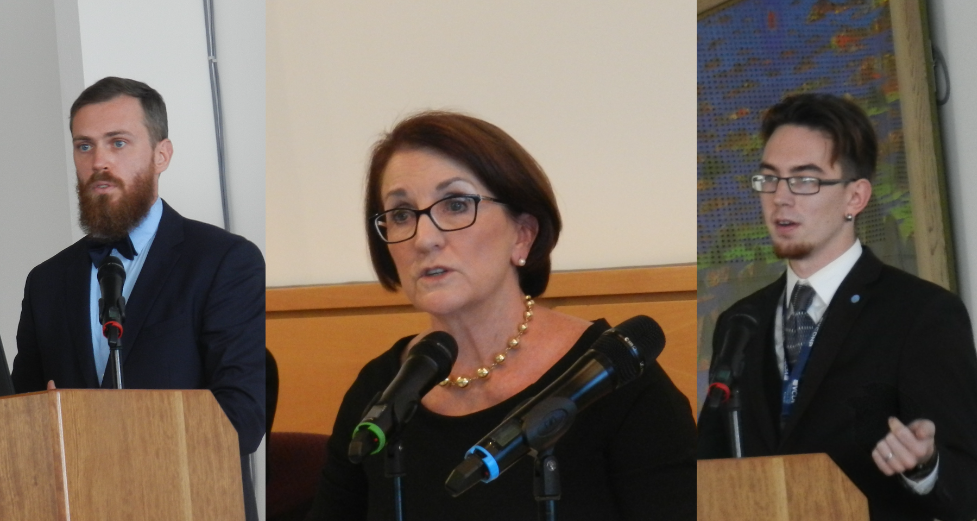
Senior Vienna-based diplomats reviewed the results of the Tenth Review Conference of the Treaty on the Non-Proliferation of Nuclear Weapons (NPT) and their implications at a panel discussion, convened by the VCDNP and hosted by the Mission of Japan on 4 October 2022. The Review Conference took place from 1 to 26 August 2022 in New York.
The panellists discussed the accomplishments of the Conference in the face of momentous challenges, such as the war in Ukraine, North Korea’s expanding nuclear weapons programme, and continued crisis in nuclear arms control. In his welcoming remarks, Japan’s Permanent Representative to the International Organizations in Vienna Ambassador Takeshi Hikihara noted that, despite its failure to adopt a final document due to Russia’s objection, the Review Conference was a demonstration of good faith and wholehearted effort by the global community to find meaningful compromise and strengthen the NPT regime.

Moderated by VCDNP Executive Director Elena K. Sokova, the panel featured senior members of the Vienna diplomatic community who participated in the Review Conference as state representatives and chairs of Main Committees and Subsidiary Bodies and were actively involved in the negotiations on the draft final document:

All speakers voiced regret that no consensus outcome was achieved, but differed in their opinions on the value of the draft final document. Several panellists agreed that, though not formally adopted, the document represents a valuable compromise on a wide range of issues and can be a useful framework for moving ahead on the NPT’s objectives. “The text is there; it proposes good language and certain solutions. When the time is right and the situation in the world is better than now, states may use it,” Ambassador Krois noted.
Ambassador Kmentt, on the other hand, cautioned that adoption of the draft final document by consensus would not have made the Review Conference a success, due to lack of progressive language on both disarmament and non-proliferation. While non-nuclear-weapon States accepted the draft final document, most of them did so out of recognition of the need to shore up the Treaty as the risk of nuclear war keeps rising, and despite their frustration with the content of the document. “The vast majority of delegations had extremely serious misgivings about the outcome document, about the process of how we got there, and that the document represented very little value in terms of operational steps forward,” Ambassador Kmentt stated.
The panellists highlighted the Conference’s significance for the ‘Vienna issues’ that include nuclear safety, security, and safeguards, export controls, and the use of nuclear technologies for advancing peace and sustainable development. In the draft final document, States Parties expressed support for the IAEA programmes such as ZODIAC that uses nuclear science to detect and track zoonotic pathogens and Rays of Hope that expands access to life-saving cancer care around the world. Many of these proposals adopted in the draft final document originated from the VCDNP Task Force on Peaceful Uses of Nuclear Science and Technology. Ambassador Johnson underscored the need for further awareness raising on the benefits of peaceful uses of nuclear technologies. “There are many educated people who know next to nothing about what nuclear applications could do in advancing development,” he noted.
Ambassador Holgate argued that the constructive negotiations on peaceful uses helped introduce positivity to the Conference deliberations and rebuild some trust between States Parties. “The peaceful uses pillar could help carry positivity and show progress in a period where we were expecting to find challenges on the disarmament and non-proliferation goals,” she summarised. Ambassador Holgate added that States Parties showed strong support for the IAEA’s ambition to better integrate nuclear solutions into development assistance, concluding that the Vienna community must start talking about nuclear applications in a way that resonates with development actors.
Watch the full recording below.
The VCDNP is deeply grateful to the Japanese Mission to the International Organizations in Vienna for hosting the event, and to the Carnegie Corporation of New York and the Austrian Foreign Ministry for their generous support for the VCDNP’s seminar series.


